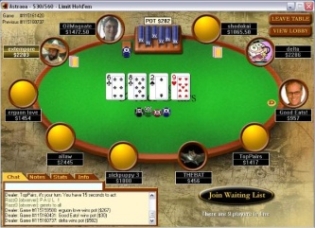
One of the most well-received innovations in online poker over the last few years was Rush Poker, introduced by Full Tilt Poker in early 2010. It was an extremely popular Hold’em and Omaha variation, giving players the opportunity to play many more hands per hour than at normal tables. But with Full Tilt’s absence from the online poker market since its license was suspended by the Alderney Gambling Control Commission (AGCC), poker fans have missed the kind of fun that Rush Poker offered.
Based on a post by a PokerStars representative on the Two Plus Two forums yesterday, however, it looks like there might be a potential Rush Poker substitute on the way within the next few months. In a thread dedicated to discussing suggested and upcoming improvements to the PokerStars software, “PokerStars Stefan” wrote, “PokerStars is developing a fast moving ring games product. We expect it to be available for public beta testing in a few months. “
Stefan has not provided any further detail, but considering the new offering is going to involve “fast moving ring games,” Rush Poker was a huge hit for PokerStars’ chief competitor, and that competitor is out of the way at the moment, it is probably safe to assume that the game bear some similarities to Rush.
The limited reaction so far has been mixed. Some people didn’t like how Rush Poker took traffic away from the standard ring game tables, but others loved the ability to play more hands per hour without having to play at more tables simultaneously. Because of this advantage, players could earn more loyalty rewards and rakeback than they could at the standard tables.
For those unfamiliar with Rush Poker, the game at its core was the same as a regular game of poker, be it Hold’em or Omaha. Hole cards, multiple rounds of betting, community cards, it was all the same. The big difference is that there was no waiting for the next hand upon folding. As soon as a player folded his hand, he was whisked away to another table, at which point a new hand was dealt. The only waiting was during other players’ turns to act before one’s own turn. Of course, this also changed strategy a bit, as it was now much more difficult to get reads on opponents, as the players at the table changed every hand.
Initial seating was different, too. Since tables do not stay intact for more than a few seconds, players did not open a table and find an empty seat. Instead, they bought in to the lobby for the game they wanted to play. Once the buy-in was confirmed, a brief countdown started, after which the player would be seated and a new hand was started immediately.
While Rush Poker was still poker, it was faster paced and felt more exciting, something that appealed to much of the recreational poker player population.
PokerStars’ new offering will not an exact clone of Full Tilt’s Rush Poker, as Full Tilt has patented the game, but expect it to be similar and, knowing PokerStars, quite possibly an improvement.


















